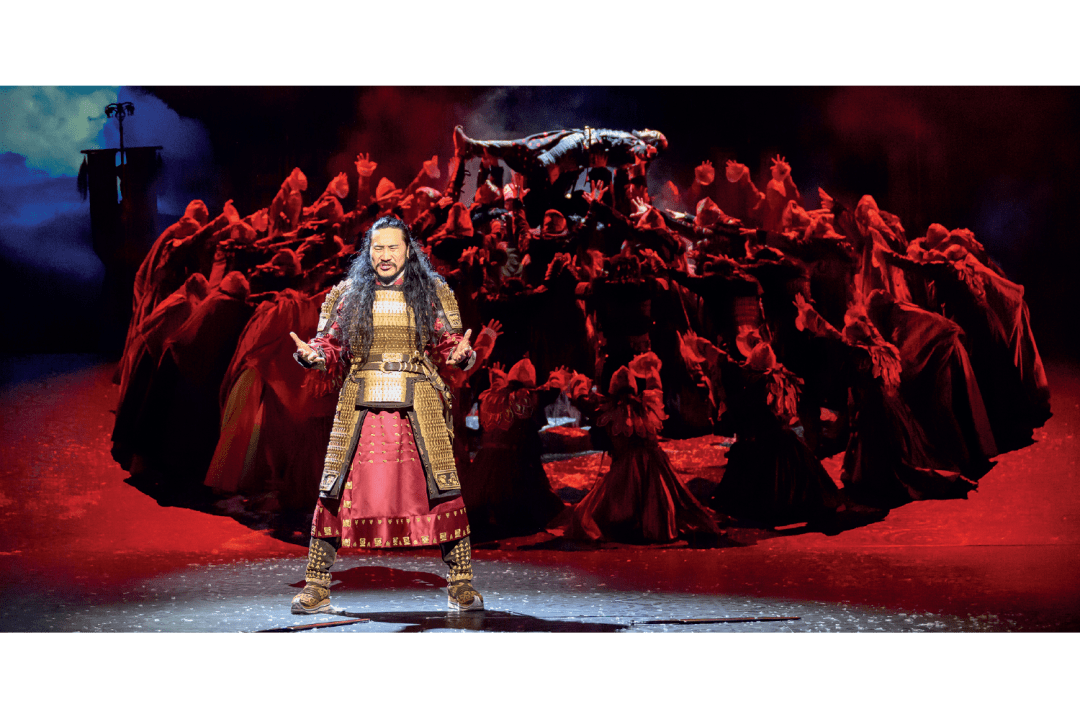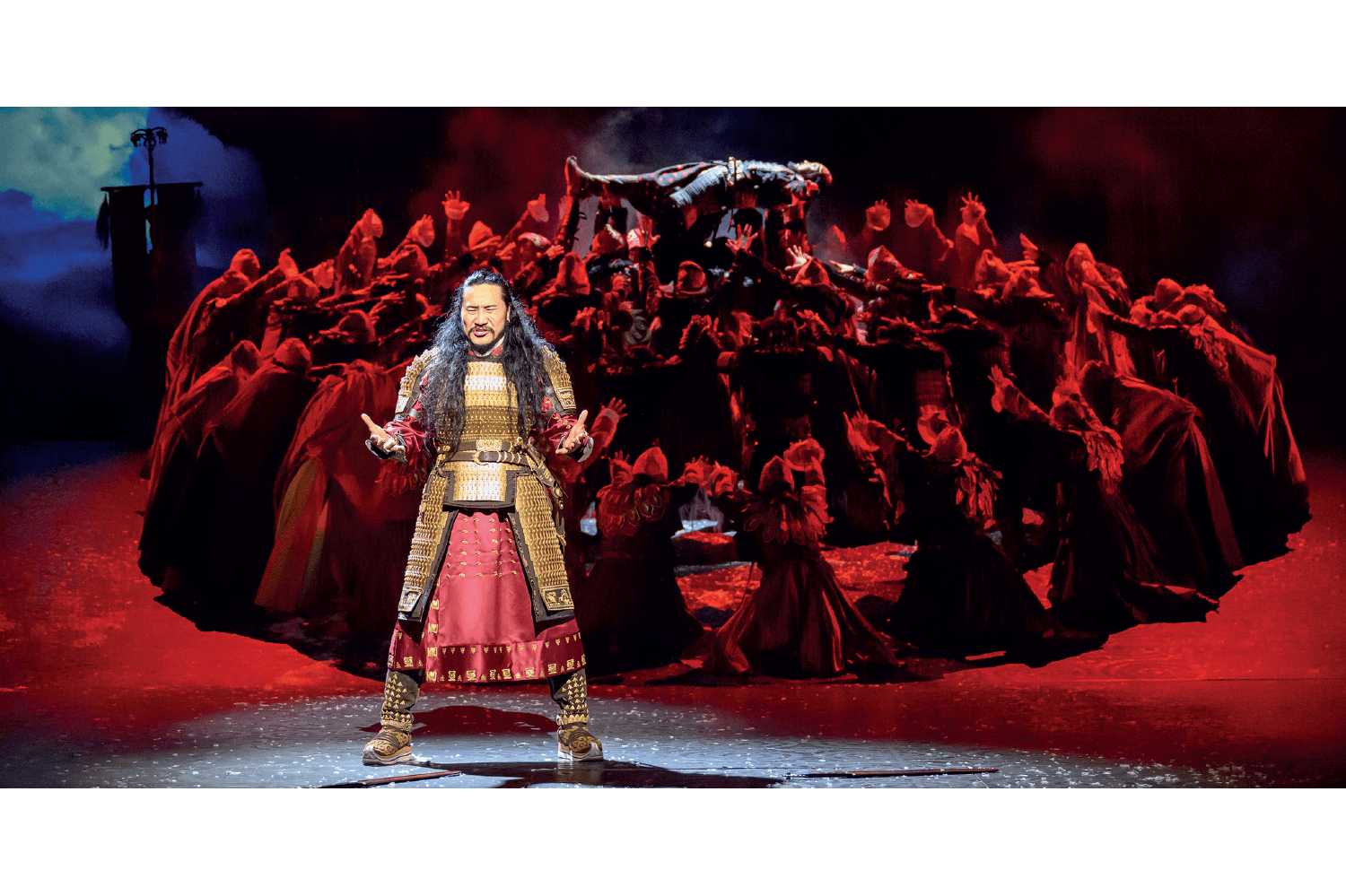When the Ballets Russes first presented Fokine’s Polovtsian Dances at Covent Garden in 1911, such was its orgiastic savagery that ladies in the audience were said to be genuinely terrified that its grease-painted warriors were about to leap off the stage and ravish them. The Mongol Khan, a great hit imported from Ulan Bator, may not induce genteel screaming, but it has some awe-inspiring moments and belongs in the same ersatz orientalist tradition as Fokine’s ballet – primitive Asiatic culture made colourfully palatable to western tastes.
I’m curious to know who put the money up for a production that must be costing millions
It is based on a 1998 play by Lkhagvasuren Bavuu, the ‘People’s Writer of Mongolia’, about a violent dynastic struggle among the Hunnic tribes that flourished, mythically at least, around the beginning of the Christian era. The passages of dialogue we hear, adapted for London by Timberlake Wertenbaker and surtitled, are played out in Mongolian and enacted by native actors in flamboyantly semaphored style, but a plot revolving round babies swapped at birth and vengeful psychopaths roaring their heads off is frankly not that engaging. The pre-recorded music is a horrible mix of bang, clatter and kitsch.
What registers more strongly is a gorgeous Bollywood spectacle that fills the stage of the Coliseum, doubling up on the excesses of Matcham’s Neronian auditorium. Amid much dry ice and rock-concert lighting, a rigorously drilled corps of 48 moves around the actors in military formation, wearing fabulously rich and strange costumes and executing what the programme describes as ‘an abundance of horse-like movements, intricate hand gestures, beckoning motions, and a wealth of chest movements’ (whatever they might be). There are some displays of martial art and acrobatic tumbling, and the whole floor show is brilliantly organised.
But it does go on a bit (a 45-minute first act, an 80-minute second one), and it is all very broadly brushed – one longs in vain for a moment of repose.









Comments
Join the debate for just £1 a month
Be part of the conversation with other Spectator readers by getting your first three months for £3.
UNLOCK ACCESS Just £1 a monthAlready a subscriber? Log in